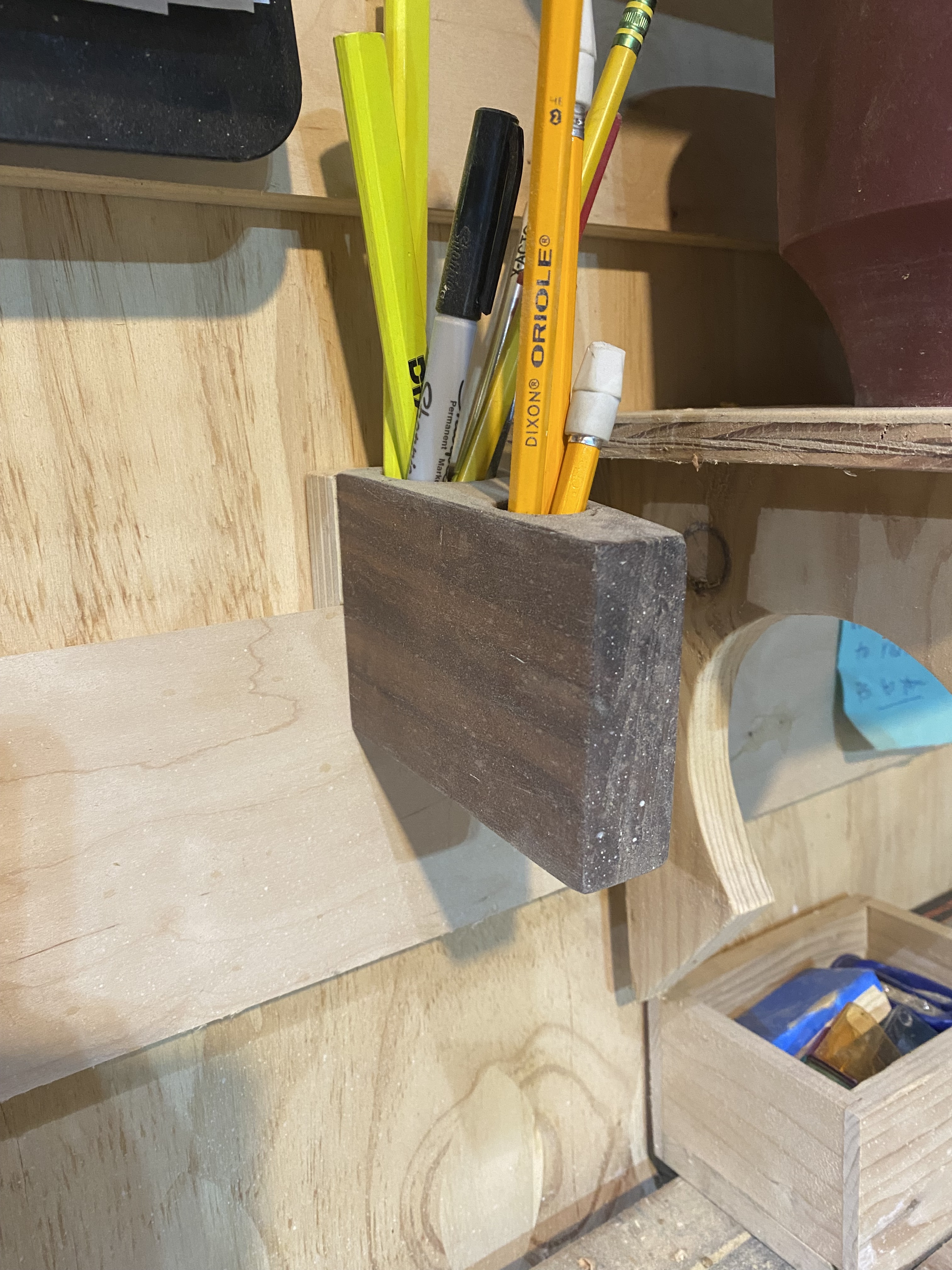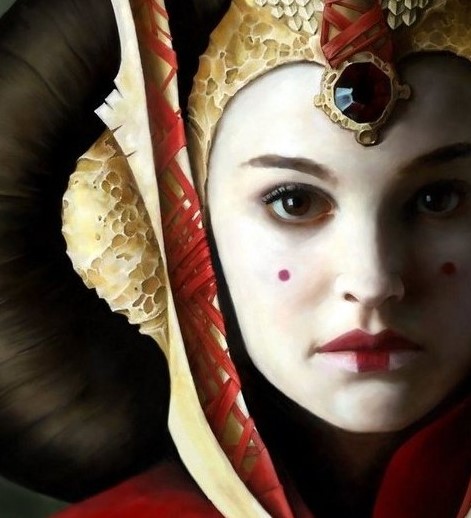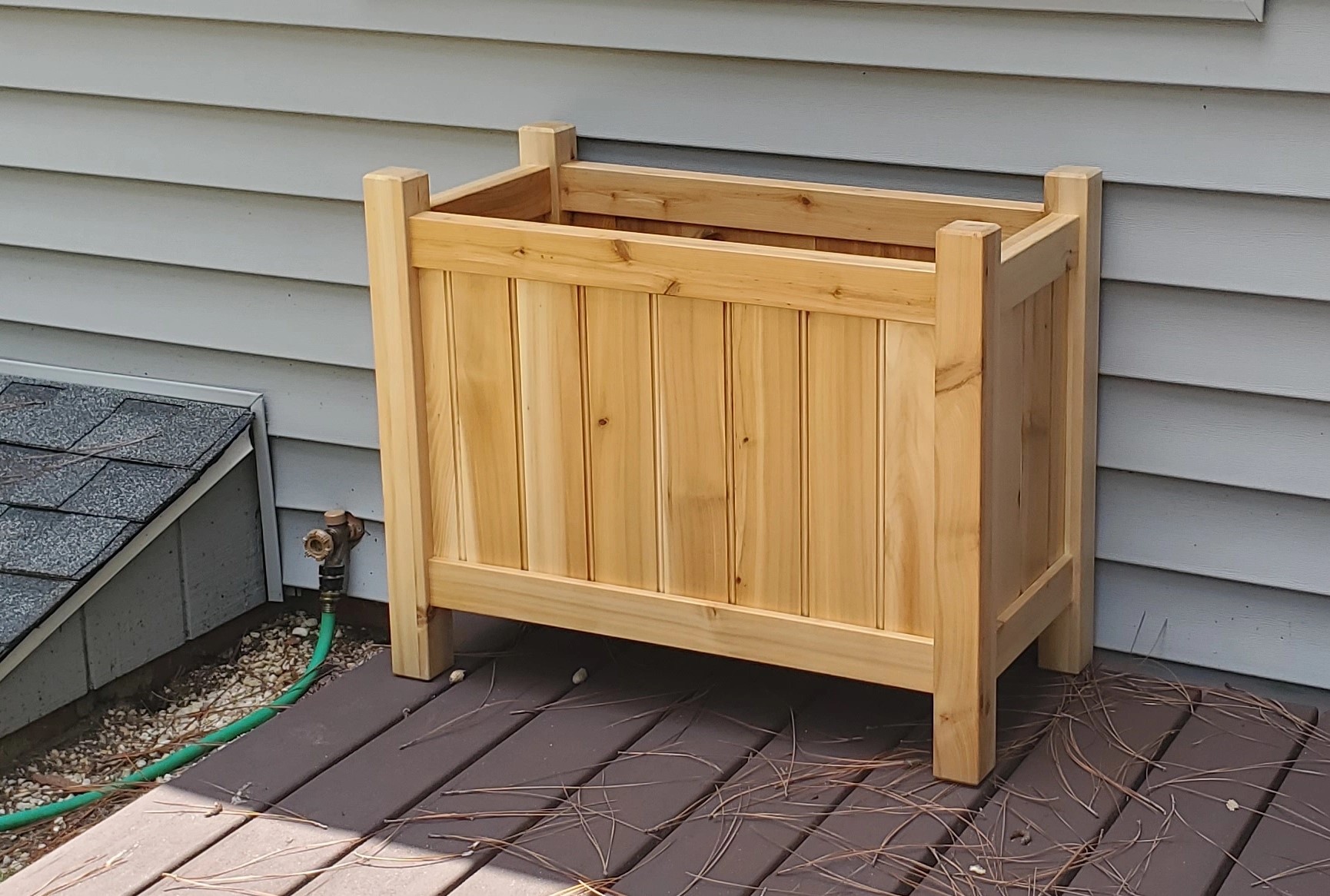













There are also some decorations of course. And a phone holder in cherry wood (but I’m using the phone). Got a salmon push stick, and the most important thing is a lid to keep dust out of my beverages.

What a nice workshop you’ve made; it has such character. I especially like the salmon push stick!

How fun and clever! I love it! You’ve done a great job.

The owl look great and I’m glad you explained what the fish was for! ;) drinks cover is a good idea too :)

Cool. I wonder what it would take to make a traditional 2.5D one but it’s not worth it, it would look out of place.
2.5D ? What’s that ?

3D effects achievable by setting your cutter at a few specific heights, and not changing height while following a 2D toolpath (generally with a mill, but you could make jigs/stencils and/or use a pantograph with a simple router). Give your owl domes for eyes and/or bevel the sides of the beak just deep enough to form a line down the middle.
An “extreme” example would be forming just the one side of your chipmunk bookend as it looks in the pic where we can also see your blue T-square, although without actual 3D toolpaths you wouldn’t be able to achieve that level of detail(you could do it with a pantograph and your existing bookend though).
Mind you, a pantograph is effectively giving you fully 3D toolpaths, but your output will be either much larger or much smaller than the source object(smaller requires a smaller router bit, and larger requires more time and a more rigid setup).

I spot a debian logo!

